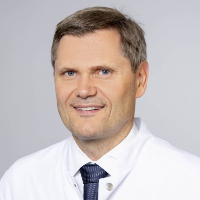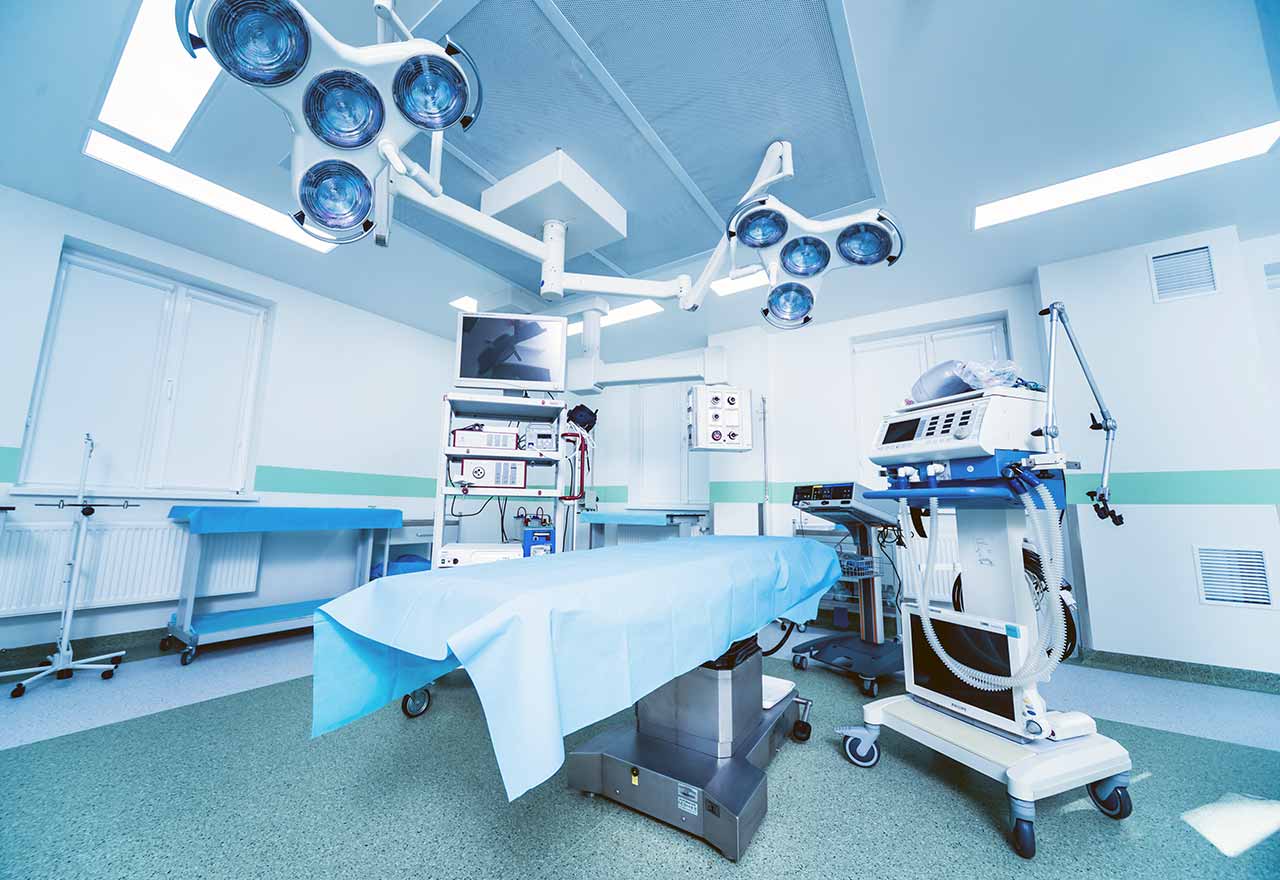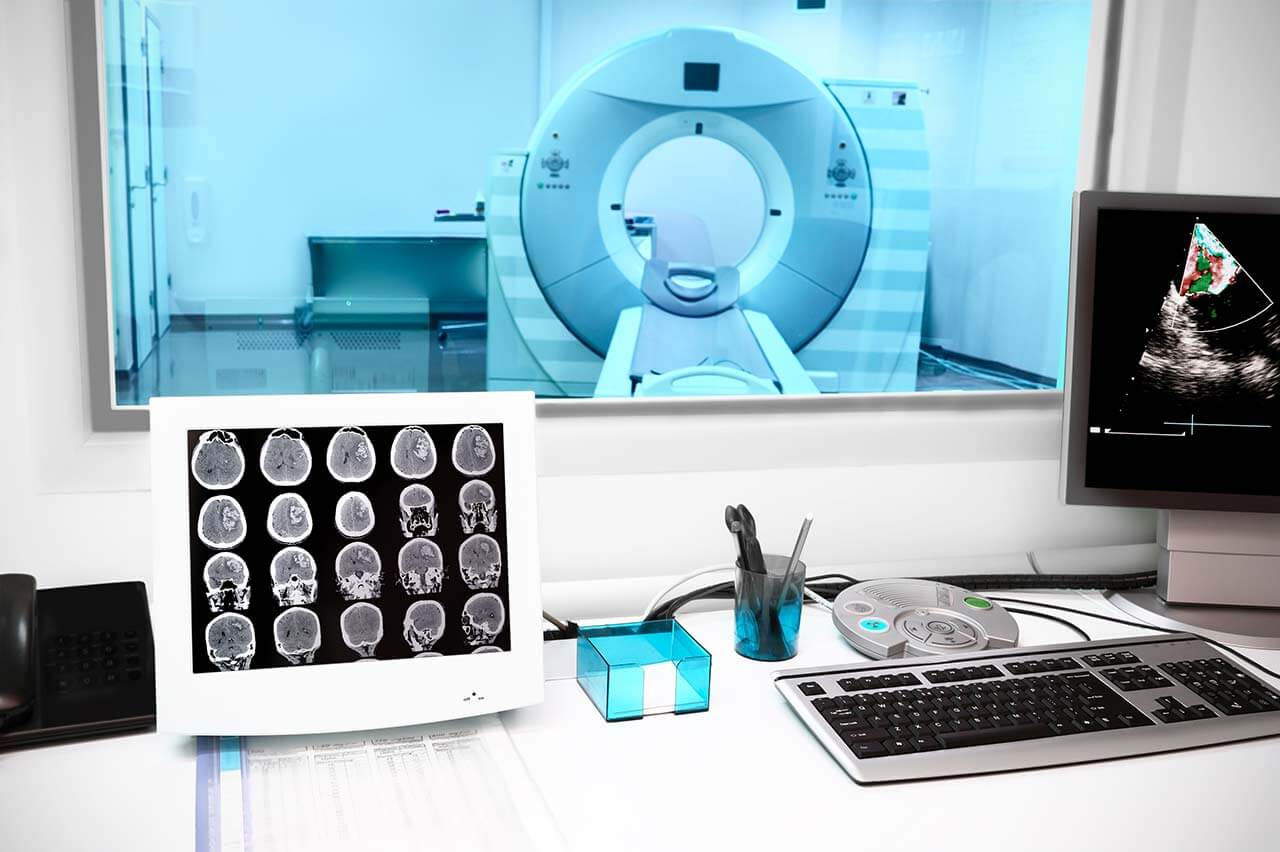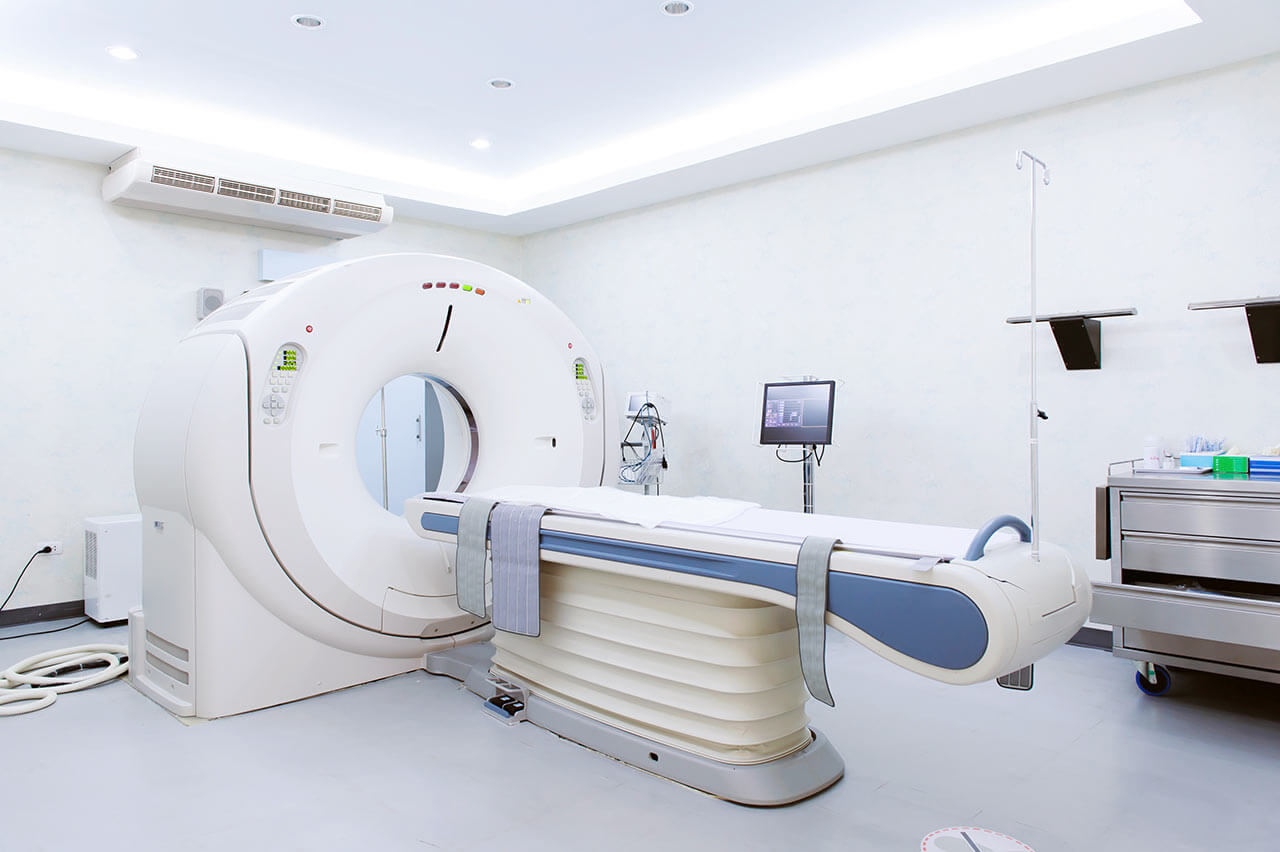
The program includes:
- Initial presentation in the clinic
- clinical history taking
- physical examination
- review of medical records
- laboratory tests:
- complete blood count
- general urine analysis
- biochemical analysis of blood
- indicators of inflammation
- indicators blood coagulation
- X-ray
- CT/MRI scan
- preoperative care
- surgical removal of metal implant
- symptomatic treatment
- control examinations
- the cost of essential medicines and materials
- nursing services
- full hospital accommodation
- explanation of future recommendations
Required documents
- Medical records
- X-ray examination (if available)
- MRI/CT scan (if available)
Service
You may also book:
 BookingHealth Price from:
BookingHealth Price from:
About the department
The Department of Trauma Surgery and Hand Surgery at the University Hospital Hamburg-Eppendorf specializes in the treatment of the full spectrum of traumatic injuries to the musculoskeletal system, with an emphasis on very severe and multiple injuries, as well as injuries in the elderly. The clinical focus also includes medical care for patients with hand disorders and injuries. The department's medical team has extensive experience in the surgical treatment of osteoporotic fractures, pelvic, elbow, shoulder, knee, and spinal injuries. Patients with bone and soft tissue sarcomas are operated on here. Most surgical procedures are minimally invasive, resulting in extremely fast postoperative recovery. The department treats more than 25,000 patients annually and successfully performs more than 3,500 surgical procedures of varying complexity. Many patients are treated on an outpatient basis. The department has a bed capacity of 84 beds, so inpatient care is also available. For its high standards of medical care and outstanding treatment successes, the healthcare facility has received quality certificates from the German Trauma Society (DGU) and the German Knee Society (DKG), as well as the SAV certificate for the treatment of severe burns. The department is headed by Prof. Dr. med. Karl-Heinz Frosch.
Doctors at the healthcare facility are deservedly proud of their excellent results in the treatment of pelvic injuries, which are classified as particularly complex. These traumatic injuries occur most often as a result of falls from a great height or road traffic accidents, in most cases in combination with other musculoskeletal injuries. In addition, pelvic fractures are common in elderly patients with osteoporosis. When choosing a treatment strategy, the main guideline for the department's doctors is the type of pelvic injury: there are stable and unstable fractures. In the first case, the fracture does not pose a risk of disrupting the stability of the pelvic ring and in most cases responds well to conservative therapy; in the second case, there is such a risk and most patients are indicated for surgery. In addition, unstable pelvic fractures often lead to early hip arthrosis,making timely and quality treatment important. It should be noted that the traumatologists of the department operate on patients with pelvic fractures using minimally invasive techniques with an innovative computer-assisted navigation system, which allows for effective results and a high degree of treatment safety. Computer-assisted navigation for the treatment of complex pelvic fractures has been used in the medical facility since 2004, making it one of the pioneers in the use of this technology in the country.
Of particular clinical interest to the department's physicians is the treatment of knee injuries. The healthcare facility is certified in this field by the German Knee Society (DKG), which attests to the excellent quality of medical services in this area. In their clinical practice, the trauma surgeons deal mainly with meniscus tears, knee cartilage injuries, cruciate ligament tears, and patellar dislocations. When clinically indicated, conservative treatment with intra-articular injections, knee taping, physiotherapy procedures, and orthoses is preferred. When physicians diagnose a complex knee injury, surgical procedures come to the forefront: depending on the specific clinical case, arthroscopic reconstructive plastic surgery, autologous cartilage cell transplantation (OATS), cartilage microfracture surgery, and other procedures are performed.
The department treats over 500 patients with spinal injuries each year, most of them cervical. In many cases, conservative treatment is sufficient, using immobilization of the injured area of the cervical spine with a special brace, followed by exercise therapy to strengthen the neck muscles; pain medications may also be indicated. Trauma surgeons often treat patients with unstable thoracic and lumbar spine fractures. In these cases, surgery is performed to stabilize the affected area of the spine.
The department offers the services of a team of highly skilled surgeons who specialize in the treatment of hand injuries and disorders. Patients with ulnar and radius fractures, wrist arthrosis, scaphoid pseudoarthrosis, Kienbock's disease, trigger finger, extensor and flexor tendon injuries, Dupuytren's contracture, rheumatic lesions of the fingers, carpal tunnel syndrome, hand tumors, and sports injuries can receive treatment here. Whenever possible, the doctors of the department use only conservative therapy based on the use of analgesics and physiotherapy. Complex cases require surgery, and all hand procedures are performed using minimally traumatic arthroscopic, endoscopic, and microsurgical techniques, mostly on an outpatient basis.
The department's medical services include the following options:
- Trauma surgery
- Diagnostics and treatment of pelvic injuries
- Diagnostics and treatment of pelvic and acetabular fractures
- Diagnostics and treatment of malunion and nonunion of pelvic fractures
- Diagnostics and treatment of osteoporotic pelvic fractures
- Diagnostics and treatment of knee injuries
- Diagnostics and treatment of meniscus tears
- Diagnostics and treatment of knee cartilage injuries
- Diagnostics and treatment of cruciate ligament injuries
- Diagnostics and treatment of patellar dislocations
- Diagnostics and treatment of elbow injuries
- Diagnostics and treatment of complex fractures with elbow dislocation
- Diagnostics and treatment of post-traumatic elbow contracture
- Diagnostics and treatment of acute and chronic elbow dislocations
- Diagnostics and treatment of post-traumatic elbow and forearm displacement
- Diagnostics and treatment of shoulder injuries
- Diagnostics and treatment of shoulder dislocation
- Diagnostics and treatment of rotator cuff tear
- Diagnostics and treatment of shoulder labrum tears
- Diagnostics and treatment of acromioclavicular joint injuries
- Diagnostics and treatment of distal biceps tendon tears
- Diagnostics and treatment of spinal injuries
- Diagnostics and treatment of cervical, thoracic, and lumbar spine injuries, including osteoporotic fractures
- Diagnostics and treatment of bone and soft tissue sarcomas
- Diagnostics and treatment of pelvic injuries
- Hand surgery
- Diagnostics and treatment of distal ulnar and distal radius fractures
- Diagnostics and treatment of wrist arthrosis
- Diagnostics and treatment of scaphoid pseudoarthrosis
- Diagnostics and treatment of Kienbock's disease
- Diagnostics and treatment of trigger finger
- Diagnostics and treatment of injuries of extensor and flexor tendon injuries
- Diagnostics and treatment of Dupuytren's contracture
- Diagnostics and treatment of rheumatic finger lesions
- Diagnostics and treatment of carpal tunnel syndrome
- Diagnostics and treatment of hand tumors
- Diagnostics and treatment of sports hand injuries
- Diagnostics and treatment of other injuries and hand diseases
The department's therapeutic options include the following:
- Conservative treatment
- Drug therapy with tablets
- Treatment with orthoses and other orthopedic aids
- Intra-articular injections
- Shock wave therapy
- Therapeutic exercises
- Physiotherapy procedures
- Surgical treatment
- Corrective osteotomy
- Osteosynthesis
- Arthrolysis
- Reconstructive plastic surgery
- Knee microfracture surgery
- Autologous cartilage transplantation (OATS)
- Major and minor amputations of upper and lower extremities
- Other treatment methods
Curriculum vitae
Higher Education and Professional Career
- 05.1990 - 10.1995 Medical studies, University of Erlangen-Nuremberg.
- 11.2009 Thesis defense. Subject: "Regulation and expression of CD40L in healthy individuals and patients with SLE".
- 01.2003 Board certification in Surgery.
- 09.2004 Senior Physician, Department of Trauma Surgery and Plastic and Reconstructive Surgery, University Hospital Goettingen.
- 09.2004 Specialization in Trauma Surgery.
- 01.2007 Habilitation. Subject: "Development of stem cell-enriched titanium mini-prostheses for partial replacement of the knee joint surface"; "Best Habilitation of the Semester", University of Goettingen.
- 08.2007 Board certification in Orthopedics and Trauma Surgery.
- 08.2007 Additional qualification in Special Trauma Surgery.
- 03.2008 Permanent Medical Representative, Department of Trauma Surgery and Plastic and Reconstructive Surgery, University Hospital Goettingen.
- 07.2008 - 06.2010 Managing Senior Physician, Department of Trauma Surgery and Plastic and Reconstructive Surgery, University Hospital Goettingen.
- 01.2009 - 12.2013 Member of the Interim Advisory Board of the German Trauma Society (DGU) and the German Society for Orthopedics and Trauma Surgery (DGOU).
- 07.2010 - 07.2018 Head, Center for Surgical Traumatology; Head Physician, Department of Trauma Surgery and Reconstructive Surgery, Asklepios Hospital St. Georg Hamburg.
- Since 09.2010 Instructor, Society for Arthroscopy and Joint Surgery (AGA).
- Since 2014 Member of the Extended Presidium of the AOTrauma Germany.
- 01.2014 - 09.2017 Deputy Head of the Program Committee of the German Trauma Society (DGU).
- 01.2014 - 10.2017 Head of the Traumatology Committee of the Society for Arthroscopy and Joint Surgery (AGA).
- 01.2016 - 12.2017 President of the German Knee Society (DKG).
- Since 08.2018 Head Physician, Department of Trauma Surgery and Hand Surgery, University Hospital Hamburg-Eppendorf.
Clinical Interests
- Complex surgical procedures on the knee joint.
- Cartilage cell transplantation.
- Meniscus plastic surgery.
- Arthroscopic knee surgery.
- Corrective osteotomy.
- Knee replacement surgery.
Research Interests
- Surgical treatment of joint diseases.
Memberships in Professional Societies
- German Knee Society (DKG).
- German Trauma Society (DGU).
- German Society for Orthopedics and Trauma Surgery (DGOU).
- Society for Arthroscopy and Joint Surgery (AGA).
- AOTrauma.
- German Society of Surgery (DGCH).
- Working Group for Endoprosthetics (AE).
- Society of Orthopedic Traumatologic Sports Medicine (GOTS).
- German Society of Osteology (DGO).
- Club "Emadeus" of the German Sports Aid Foundation.
Photo of the doctor: (c) Universitätsklinikum Hamburg-Eppendorf (UKE)
About hospital
According to the Focus magazine, the University Hospital Hamburg-Eppendorf is one of the top ten hospitals in Germany!
Since its foundation in 1889, the hospital has taken a leading position in the European medical arena, which it still holds today. A highly competent medical team of more than 15,300 employees takes care of the health of patients. Approximately 2,900 of them are physicians and researchers, and more than 3,400 work as nurses and therapists. The hospital has 1,738 beds for inpatient treatment, and many diagnostic and therapeutic services are provided on an outpatient basis. A solid foundation for successful clinical practice in the medical complex is formed by a combination of research achievements with state-of-the-art equipment and the highest professionalism of doctors. In addition, the hospital has a modern and extremely comfortable infrastructure. The most important value for every employee of the University Hospital Hamburg-Eppendorf is the health and well-being of every patient.
The medical facility was the first university hospital in Europe to implement an electronic system for storing patient medical reports. As a result, all diagnostic and treatment protocols are stored electronically. In 2011, the hospital was certified as the first fully digital hospital in Europe.
The hospital represents all areas of modern medicine. The doctors of the healthcare facility have a wealth of theoretical knowledge and vast clinical experience, which allows them to easily cope with the treatment of both common and extremely rare, complex clinical cases. About 550,000 patients are treated here each year, over 450,000 of whom receive outpatient medical care.
An important part of the work of the University Hospital Hamburg-Eppendorf is research activities aimed at developing innovative diagnostic and treatment methods. The main areas of research of the hospital include neurobiology, oncology, cardiovascular research, and research on infectious and inflammatory diseases. Special attention is also given to research in molecular imaging and skeletal biology.
The hospital is distinguished by its first-class level of medical care, which is confirmed by numerous quality certificates of European and international standards: DIN EN IS0 9001 certificate, certificates of the German Cancer Society (DKG) in the treatment of breast cancer, colon cancer, gynecological cancer, prostate cancer, and other oncological diseases, certificate of the German Cardiac Society (DGK) in the treatment of acute coronary syndrome, certificate of the German Spine Society (DWG), and others.
Photo: (с) depositphotos
Accommodation in hospital
Patients rooms
The patients of the University Hospital Hamburg-Eppendorf stay in comfortable single and double bright rooms with a modern design. Each patient room has an ensuite bathroom with a shower and a toilet. The standard patient room furnishings include an automatically adjustable bed with an orthopedic mattress, a bedside table, a wardrobe, a table and chairs for receiving visitors, a telephone, a radio, and a TV. Wi-Fi access is available in patient rooms and throughout the hospital.
If desired, patients can stay in single enhanced-comfort rooms. These rooms are more spacious and are equipped with upholstered furniture, a safe, and a mini-fridge.
Meals and Menus
The hospital offers three meals a day: breakfast, lunch, and dinner. Breakfast and dinner are served in the form of buffets, and for lunch you can choose from several set menus – in total, more than 20 dishes are served for lunch, including vegetarian ones.
If, for some reason, you cannot eat all of the foods, you will be offered an individual menu. Please inform the medical staff about your dietary preferences prior to the treatment.
Further details
Standard rooms include:
![]() Toilet
Toilet
![]() Shower
Shower
![]() Wi-Fi
Wi-Fi
![]() TV
TV
Religion
Religious services are available upon request.
Accompanying person
During the inpatient program, an accompanying person may stay with you in a patient room or hotel of your choice.
Hospital accommodation
During the outpatient program, you may stay in a hotel at the hospital.
Hotel
During the outpatient program, you may stay in a hotel of your choice. Managers will help you choose the most suitable options.
The hospital offers a full range of laboratory tests (general, hormonal, tests for infections, antibodies, tumor markers, etc.), genetic tests, various modifications of ultrasound scans, CT scans, MRI and PET / CT, angiography, myelography, biopsy and other examinations. Treatment with medications, endoscopic and robotic operations, stereotaxic interventions is carried out here, modern types of radiation therapy are also used. The hospital offers patients all the necessary therapeutic techniques.
- Coiling and clipping of aneurysms of different localizations
- Transjugular intrahepatic portosystemic shunting in patients with portal hypertension
- Minimally invasive surgeries (da Vinci)
- Removal and reconstruction of mammary glands
- Hyperthermic intraperitoneal chemotherapy (HIPEC)
These are arteriovenous malformations and angiomas, vascular aneurysms, pathologies of the mammary glands, pelvic organ prolapse, urinary incontinence, malignant tumors of various localizations (area of special attention is treatment of intestinal cancer), pathologies of liver and pancreas, cataracts and rare ophthalmic pathologies (aphakia, aniridia ), infertility and other diseases.
- Interventional neuroradiology
- Mammology
- Oncology
- Gastroenterology
- Surgery
Over 2,900 highly qualified physicians and researchers work at the hospital.





